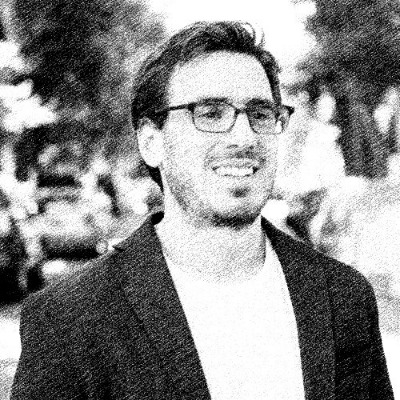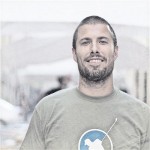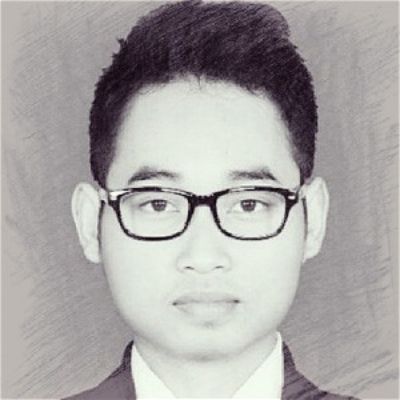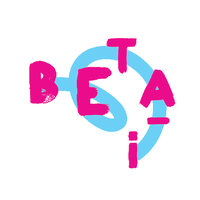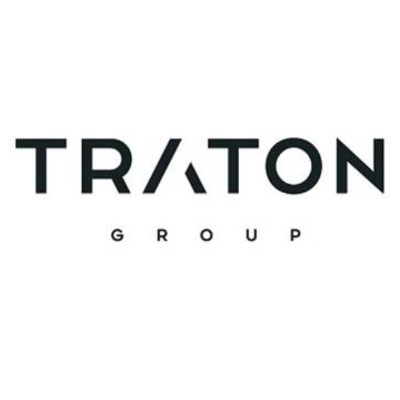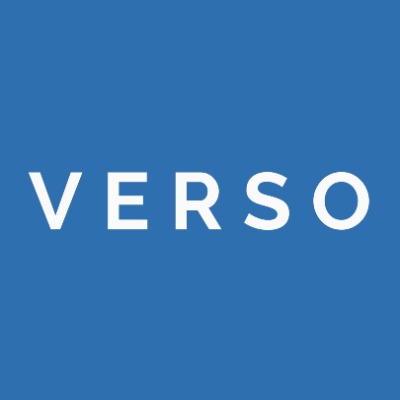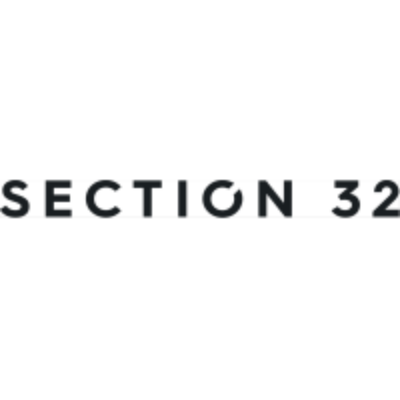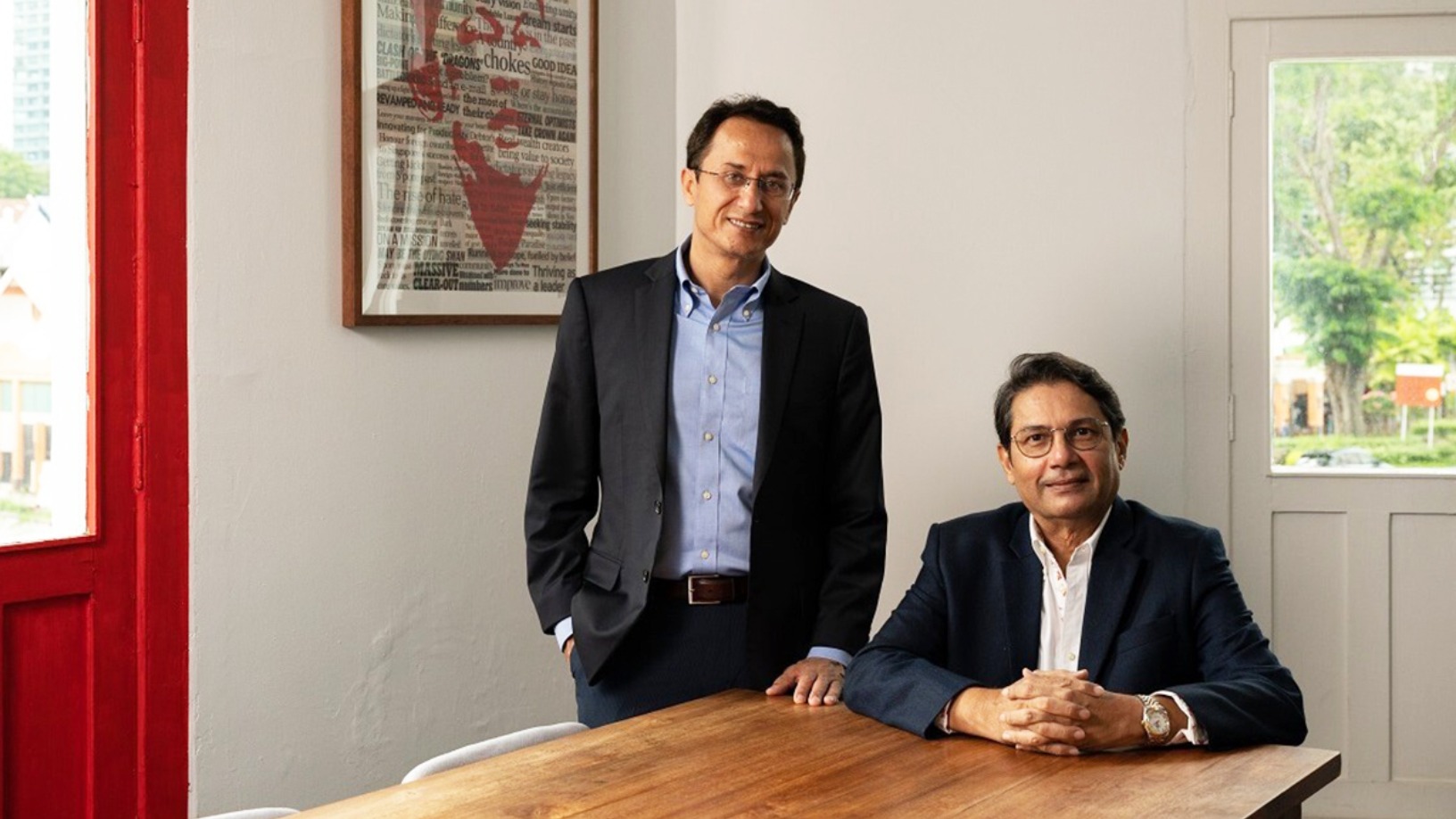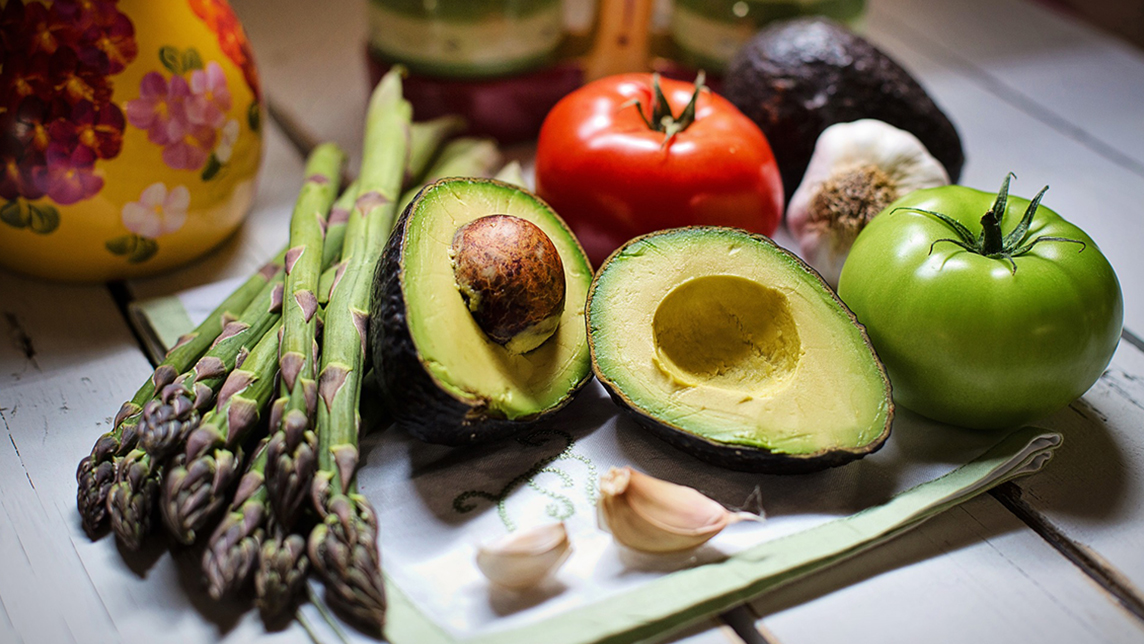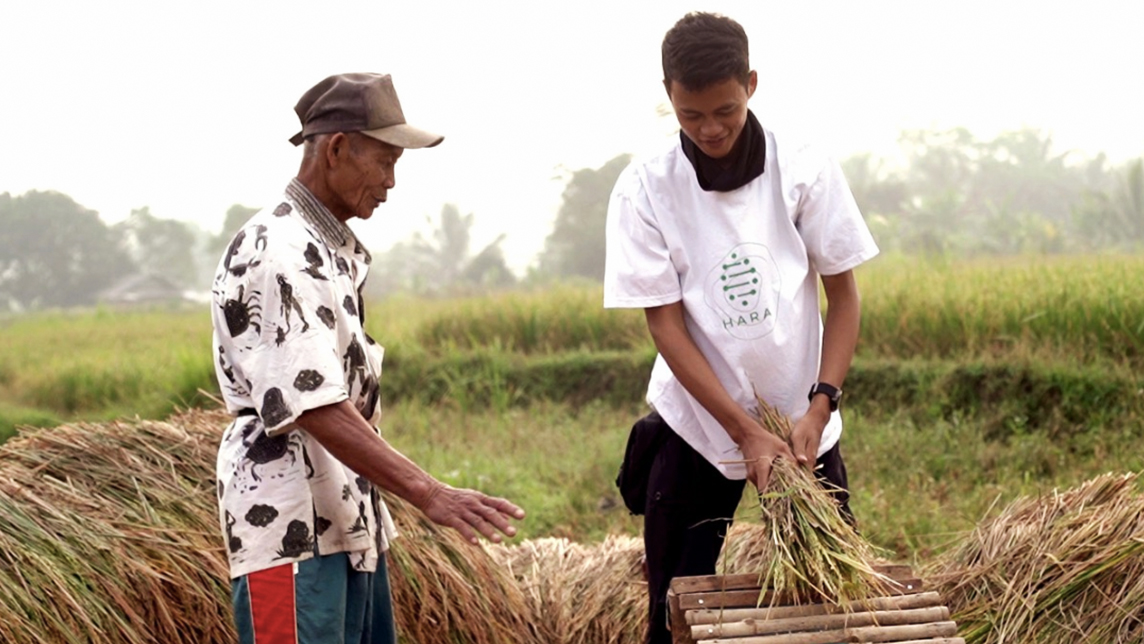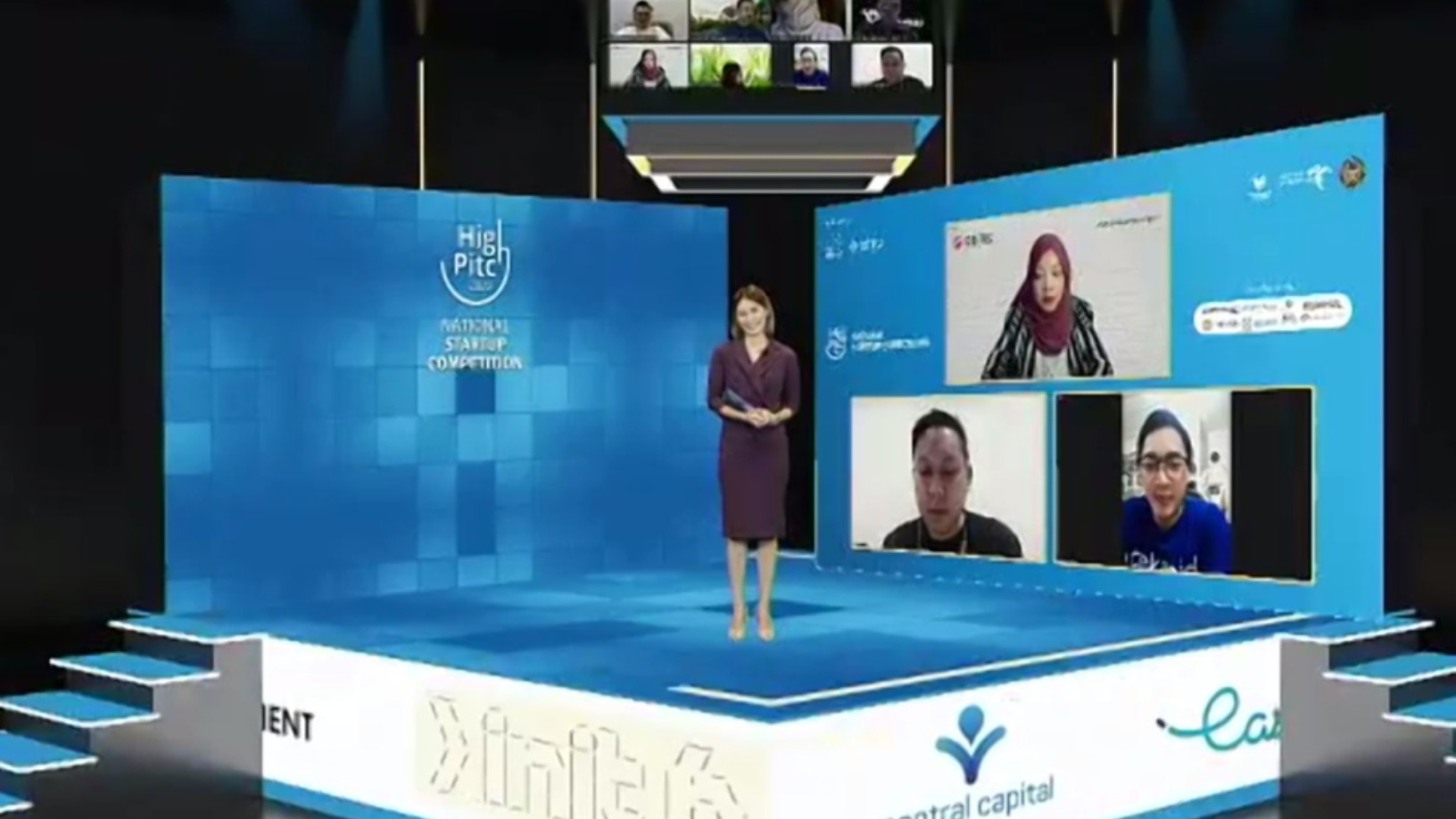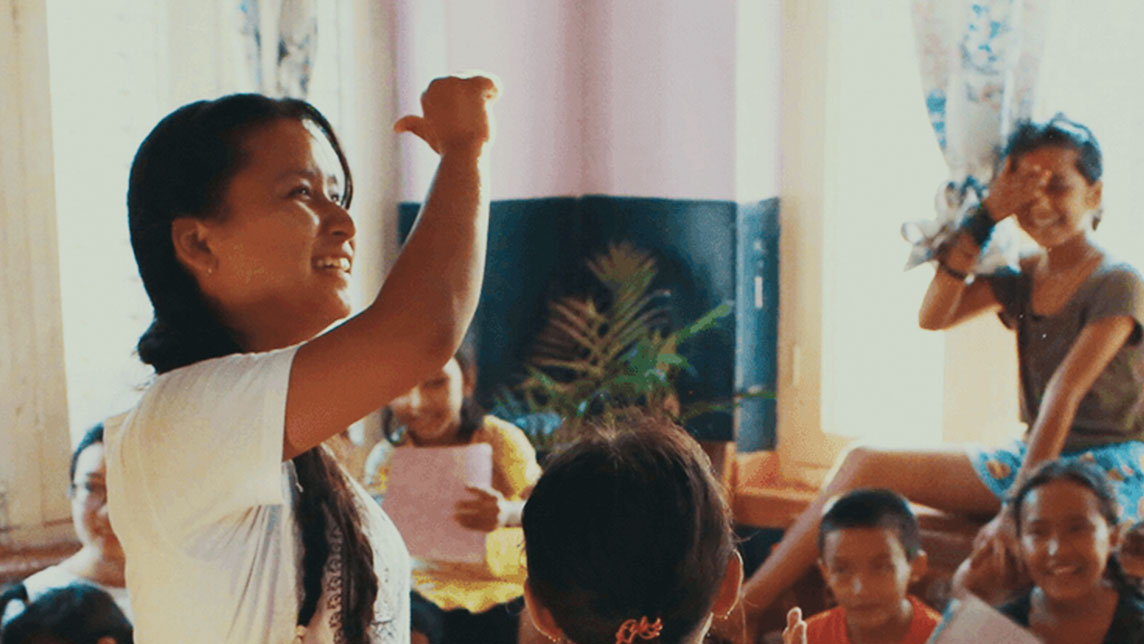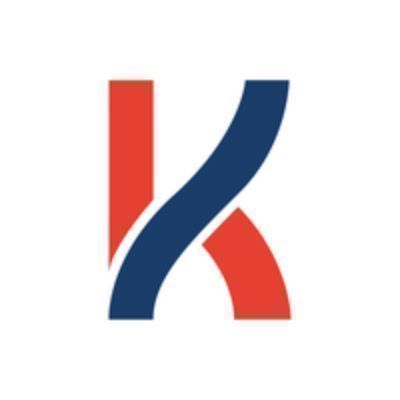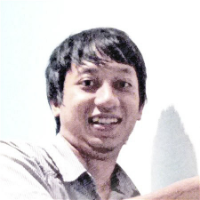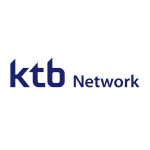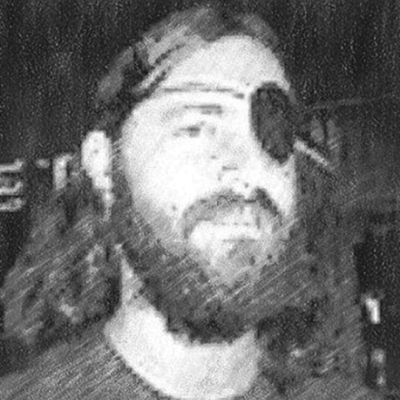Good Startup
-
DATABASE (574)
-
ARTICLES (725)
Co-CEO, co-founder of Psquared
Argentinian native Nicolas Araujo Müller is co-CEO and co-founder at Psquared, Spain’s first flexible workplace management and design company for hybrid workspaces. He has worked there since its foundation in April 2018, originally as part of startup hub CoBuilder, and is now its CFO. He is also a part-time advisor and investor at startup development agency We Are Grit, since its launch in 2020.Earlier, Araujo was CFO and co-founder at digital talent agency Bandit, for two years, until 2017. Before that, he held the same roles at his previous Barcelona-based startup, Nubelo, another tech recruitment agency for freelancers, between 2012 and 2016, when it was acquired by Freelancer.com. In 2016, Araujo was a visiting professor at the Autonomous University of Barcelona on digital economy.His first startup was Work At Home in Argentina, where he was a co-founder for two years from 2011–13, for which he won local innovation prizes. Prior to this, Araujo held various management consultancy roles, working in business analysis and research at Ernst & Young, Standard & Poor’s and Accenture, from 2008–2012, and completed a stint at the US embassy in Buenos Aires. He is also a founding member of Argentina’s entrepreneur organization, ASEA, established in 2013. Araujo holds a degree in economics from CEMA University, Buenos Aires and a qualification from Harvard University in negotiation. In 2017 and 2013, Araujo was named in Forbes Argentina’s 30 Promesas list of young entrepreneurs.
Argentinian native Nicolas Araujo Müller is co-CEO and co-founder at Psquared, Spain’s first flexible workplace management and design company for hybrid workspaces. He has worked there since its foundation in April 2018, originally as part of startup hub CoBuilder, and is now its CFO. He is also a part-time advisor and investor at startup development agency We Are Grit, since its launch in 2020.Earlier, Araujo was CFO and co-founder at digital talent agency Bandit, for two years, until 2017. Before that, he held the same roles at his previous Barcelona-based startup, Nubelo, another tech recruitment agency for freelancers, between 2012 and 2016, when it was acquired by Freelancer.com. In 2016, Araujo was a visiting professor at the Autonomous University of Barcelona on digital economy.His first startup was Work At Home in Argentina, where he was a co-founder for two years from 2011–13, for which he won local innovation prizes. Prior to this, Araujo held various management consultancy roles, working in business analysis and research at Ernst & Young, Standard & Poor’s and Accenture, from 2008–2012, and completed a stint at the US embassy in Buenos Aires. He is also a founding member of Argentina’s entrepreneur organization, ASEA, established in 2013. Araujo holds a degree in economics from CEMA University, Buenos Aires and a qualification from Harvard University in negotiation. In 2017 and 2013, Araujo was named in Forbes Argentina’s 30 Promesas list of young entrepreneurs.
Founder and CEO of Hole19
Marketing specialist Anthony Douglas have held various positions at BMW, Sony Electronics, Tim w.e. Mexico, Zuvinova and ActualSales. In 2011, he left his work as Business Manager for iPhone Applications at ActualSales to start his golfing startup, Hole19. Douglas has a Portuguese mother and an American father.
Marketing specialist Anthony Douglas have held various positions at BMW, Sony Electronics, Tim w.e. Mexico, Zuvinova and ActualSales. In 2011, he left his work as Business Manager for iPhone Applications at ActualSales to start his golfing startup, Hole19. Douglas has a Portuguese mother and an American father.
Founder and CEO of Joyowo (Jinyouwang)
A serial entrepreneur since 2009, Guo Wei graduated from the Central University of Finance and Economics and founded Jinyuan Group, the company behind HR services and social insurance management SaaS startup Joyowo, in 2014.He is currently the CEO of Jinyuan Group and Joyowo.
A serial entrepreneur since 2009, Guo Wei graduated from the Central University of Finance and Economics and founded Jinyuan Group, the company behind HR services and social insurance management SaaS startup Joyowo, in 2014.He is currently the CEO of Jinyuan Group and Joyowo.
Co-founder and CTO of Jala
Hanry Ario is a skilled programmer armed with a diverse skillset, from C++ to AutoCAD. In 2014, he graduated from Universitas Gadjah Mada in Indonesia and joined fellow alumni to establish electronics startup Atnic. Hanry is the CTO of Atnic that created the Jala sensor for shrimp farms.
Hanry Ario is a skilled programmer armed with a diverse skillset, from C++ to AutoCAD. In 2014, he graduated from Universitas Gadjah Mada in Indonesia and joined fellow alumni to establish electronics startup Atnic. Hanry is the CTO of Atnic that created the Jala sensor for shrimp farms.
Co-founder and CEO of Nodeflux
Meidy Fitranto is an experienced business analyst and manager with an industrial engineering background. Between 2010 and 2014, he filled supply chain management roles at two oil & gas companies, PT Energi Mega Persada and Kangean Energy Indonesia Ltd. In 2016, he established Nodeflux, a computer vision startup.
Meidy Fitranto is an experienced business analyst and manager with an industrial engineering background. Between 2010 and 2014, he filled supply chain management roles at two oil & gas companies, PT Energi Mega Persada and Kangean Energy Indonesia Ltd. In 2016, he established Nodeflux, a computer vision startup.
Founder and CEO of Pawoon
University of Melbourne graduate Ahmad Gadi worked as an analyst at contract manufacturer Malidas Sterilindo and Kraft Foods in Indonesia before establishing PT Alphanovation Digital Teknindo in 2013. The software consultancy catered to clients from FMCG to aviation industries and also became the launchpad for POS startup Pawoon in 2014.
University of Melbourne graduate Ahmad Gadi worked as an analyst at contract manufacturer Malidas Sterilindo and Kraft Foods in Indonesia before establishing PT Alphanovation Digital Teknindo in 2013. The software consultancy catered to clients from FMCG to aviation industries and also became the launchpad for POS startup Pawoon in 2014.
Co-founder and CMO of Pakde
Maria Octavyani Manao graduated from Universitas Indonesia with a bachelor's degree in Psychology in 2012. She had interned at Unilever's human resources and upon graduation, joined one of its companies, Nestle. Maria left Nestle in 2014, working at other companies before establishing logistics service startup Pakde in 2017.
Maria Octavyani Manao graduated from Universitas Indonesia with a bachelor's degree in Psychology in 2012. She had interned at Unilever's human resources and upon graduation, joined one of its companies, Nestle. Maria left Nestle in 2014, working at other companies before establishing logistics service startup Pakde in 2017.
Co-founder and CTO of PrivyID
Guritno Adi Saputra graduated from Institut Sains & Teknologi AKPRIND, Indonesia with a bachelor's in Information Technology. Between 2013 and 2015, he was a web developer at Yogyakarta technology consultancy firm IndonesiaJogja Info Service and INDigital. Guritno is co-founder and CTO of digital signature startup PrivyID.
Guritno Adi Saputra graduated from Institut Sains & Teknologi AKPRIND, Indonesia with a bachelor's in Information Technology. Between 2013 and 2015, he was a web developer at Yogyakarta technology consultancy firm IndonesiaJogja Info Service and INDigital. Guritno is co-founder and CTO of digital signature startup PrivyID.
Beta-i was established in 2010 as a Portuguese accelerator, incubator and event organizer to boost the Portuguese tech ecosystem. Beta-i is well-known for organizing some of Portugal's most successful accelerators and the annual tech startup event Lisbon Investment Summit. In 2019, it made its first investment in a startup Didimo by joining the seed round for the 3D digital twin designer platform.The company's best known acceleration program Lisbon Challenge is a twice yearly event open to all tech sectors, attracting around 10 participants based in Portugal and overseas. Its two-month programs have accelerated more than 200 startups, with about 75% coming from abroad. Beta-i also organizes the international energy accelerator Free Electrons, with EDP as one of its sponsors. Free Electrons has already accelerated 27 startups and is now running its third edition with 15 startups, five of which are Portugal-based. All the selected participants will have the chance to work for one year with at least one of the 10 global energy utilities that form the Free Electrons consortium. Another Beta-i event is The Journey, the first accelerator in Portugal dedicated to tourism tech startups from all over the world. Launched in partnership with the government's Portugal Tourism in 2017, the Lisbon-based program is part of the national Tourism 4.0 plan. The five-month program is now in its third edition and gives successful applicants the opportunity to develop pilot projects with Portuguese companies like the Vila Galé hotel chain, Barraqueiro transport company and Parques de Sintra, a UNESCO World Heritage site.
Beta-i was established in 2010 as a Portuguese accelerator, incubator and event organizer to boost the Portuguese tech ecosystem. Beta-i is well-known for organizing some of Portugal's most successful accelerators and the annual tech startup event Lisbon Investment Summit. In 2019, it made its first investment in a startup Didimo by joining the seed round for the 3D digital twin designer platform.The company's best known acceleration program Lisbon Challenge is a twice yearly event open to all tech sectors, attracting around 10 participants based in Portugal and overseas. Its two-month programs have accelerated more than 200 startups, with about 75% coming from abroad. Beta-i also organizes the international energy accelerator Free Electrons, with EDP as one of its sponsors. Free Electrons has already accelerated 27 startups and is now running its third edition with 15 startups, five of which are Portugal-based. All the selected participants will have the chance to work for one year with at least one of the 10 global energy utilities that form the Free Electrons consortium. Another Beta-i event is The Journey, the first accelerator in Portugal dedicated to tourism tech startups from all over the world. Launched in partnership with the government's Portugal Tourism in 2017, the Lisbon-based program is part of the national Tourism 4.0 plan. The five-month program is now in its third edition and gives successful applicants the opportunity to develop pilot projects with Portuguese companies like the Vila Galé hotel chain, Barraqueiro transport company and Parques de Sintra, a UNESCO World Heritage site.
Founded in 2015, M25 is an early-stage VC based in Chicago, investing solely in companies headquartered in the US Midwest across tech sectors, almost exclusively at seed stage. It currently has 77 companies in its portfolio and has managed eight exits to date. Its most recent investments include in gaming monetization app Metafy’s $3m seed round in December 2020 and in the $2.7m seed round of mobile online store creation app CASHDROP in August 2020. It invests from $100,000 at the idea stage through to $25m per startup.Im sorry but I dont see that investing in 15 different sectors is actually a focus that is why I put General. it´s mosre like what sectors do they not invest in?
Founded in 2015, M25 is an early-stage VC based in Chicago, investing solely in companies headquartered in the US Midwest across tech sectors, almost exclusively at seed stage. It currently has 77 companies in its portfolio and has managed eight exits to date. Its most recent investments include in gaming monetization app Metafy’s $3m seed round in December 2020 and in the $2.7m seed round of mobile online store creation app CASHDROP in August 2020. It invests from $100,000 at the idea stage through to $25m per startup.Im sorry but I dont see that investing in 15 different sectors is actually a focus that is why I put General. it´s mosre like what sectors do they not invest in?
TRATON is a subsidiary of Volkswagen Group and one of the world’s largest producer of commercial vehicles. It manufactures light-duty commercial vehicles, trucks and buses at 29 production and assembly sites in 17 countries.The company is now focusing on developing electric trucks and announced in March 2021 that it will invest a total of €1.6bn in e-mobility R&D by 2025. In September 2020, it partnered with self-driving trucking startup TuSimple to mass produce driverless trucks.In March 2021, Navistar stockholders approved the acquisition of Navistar by TRATON. Subject to regulatory approvals, the transaction is expected to be completed by mid-May.
TRATON is a subsidiary of Volkswagen Group and one of the world’s largest producer of commercial vehicles. It manufactures light-duty commercial vehicles, trucks and buses at 29 production and assembly sites in 17 countries.The company is now focusing on developing electric trucks and announced in March 2021 that it will invest a total of €1.6bn in e-mobility R&D by 2025. In September 2020, it partnered with self-driving trucking startup TuSimple to mass produce driverless trucks.In March 2021, Navistar stockholders approved the acquisition of Navistar by TRATON. Subject to regulatory approvals, the transaction is expected to be completed by mid-May.
Established in 1958, VERSO Capital is a boutique merchant banking and financial services firm based in Luxembourg. It also has offices in Geneva, Fribourg, Vaduz, Dubai, Singapore and BVI. VERSO specializes in sectors like education, food and renewables. Since 2011, the firm has invested over $700bn in venture capital in the global startup ecosystem. Funds worth over $245m were pumped into climatech, foodtech and biotech sectors since 2017. In February 2021, it merged with Swiss alternative asset manager ALDINI Capital that was also founded in 1958 and based in Switzerland and Liechtenstein. VERSO will leverage the expertise of ALDINI in hedge funds, private equity and real estate.
Established in 1958, VERSO Capital is a boutique merchant banking and financial services firm based in Luxembourg. It also has offices in Geneva, Fribourg, Vaduz, Dubai, Singapore and BVI. VERSO specializes in sectors like education, food and renewables. Since 2011, the firm has invested over $700bn in venture capital in the global startup ecosystem. Funds worth over $245m were pumped into climatech, foodtech and biotech sectors since 2017. In February 2021, it merged with Swiss alternative asset manager ALDINI Capital that was also founded in 1958 and based in Switzerland and Liechtenstein. VERSO will leverage the expertise of ALDINI in hedge funds, private equity and real estate.
Founded in Silicon Valley by serial investor and founder of Google Ventures Bill Marris, Section 32 has multiple investment interests with medicine and biotech key amongst them. Marris himself has invested in over 500 companies, with over one-third resulting in IPO or M&A. Fifty of his portfolio companies have exceeded $1bn valuations, including Uber. Section 32 currently has 48 companies in its portfolio. Its most recent investments have included in Canadian remote medicine platform Cover Health’s $43m Series B round and in the $100m Series B round of US cancer detection software C2i Genomics, both in April 2021. In March 2021, it participated in the $48m Series A round of Dutch cell-based meat startup Meatable which leverages pluripotent stem cells for the first time in foodtech.
Founded in Silicon Valley by serial investor and founder of Google Ventures Bill Marris, Section 32 has multiple investment interests with medicine and biotech key amongst them. Marris himself has invested in over 500 companies, with over one-third resulting in IPO or M&A. Fifty of his portfolio companies have exceeded $1bn valuations, including Uber. Section 32 currently has 48 companies in its portfolio. Its most recent investments have included in Canadian remote medicine platform Cover Health’s $43m Series B round and in the $100m Series B round of US cancer detection software C2i Genomics, both in April 2021. In March 2021, it participated in the $48m Series A round of Dutch cell-based meat startup Meatable which leverages pluripotent stem cells for the first time in foodtech.
New Energy Nexus is a US-based investor and startup support organization that focuses on the clean energy sector. The company was originally known as the California Clean Energy Fund (CalCEF) and has invested in SolarCentury and Tesla Motors. Since 2015, New Energy Nexus has been working with international partners like GIZ (the German agency for international development) and IKEA Foundation to promote renewables and smart energy worldwide. In 2018, New Energy Nexus launched its Southeast Asian operations by establishing offices in Indonesia and Thailand.New Energy Nexus supports startups through incubator and accelerator programs, hackathons, public talks, grants and equity investments. So far, it has invested in four Indonesian startups, including B2B rooftop solar service provider Xurya and solar equipment marketplace BLUE, and distributed nearly $50,000 in grants.
New Energy Nexus is a US-based investor and startup support organization that focuses on the clean energy sector. The company was originally known as the California Clean Energy Fund (CalCEF) and has invested in SolarCentury and Tesla Motors. Since 2015, New Energy Nexus has been working with international partners like GIZ (the German agency for international development) and IKEA Foundation to promote renewables and smart energy worldwide. In 2018, New Energy Nexus launched its Southeast Asian operations by establishing offices in Indonesia and Thailand.New Energy Nexus supports startups through incubator and accelerator programs, hackathons, public talks, grants and equity investments. So far, it has invested in four Indonesian startups, including B2B rooftop solar service provider Xurya and solar equipment marketplace BLUE, and distributed nearly $50,000 in grants.
Co-founder of Meatable
Mark Kotter is the Austrian co-founder at Dutch cell-based meat startup Meatable, the first to use pluripotent stem cells and claim a highly scalable culture technology, which was developed by Kotter prior to founding the startup in 2018. He is also founder at his biotech startup, bit.bio, which is based in Cambridge, UK, since 2016, where he applies his cellular technological innovation to human stem cell research and has raised investments totaling $42m. His main full-time position is at the University of Cambridge, where he has worked since 2009. He has spent more than five years as a clinician-scientist in stem cell research and was previously a lecturer in neurosurgery. Kotter also lectures at Paris Descartes University and is a team leader at the UK’s National Institute for Health Research’s Brain Injury MedTech Co-operative. He also founded Myelopathy.org to raise awareness of cervical myelopathy. His past positions were as a research group leader at the Max Planck Institute for Experimental Medicine for one year, and for two years spent at the Medical University of Vienna. Kotter holds two doctorates; one in philosophy from the University of Cambridge and the other in medicine from the University of Graz in Austria. Kotter also holds a master’s in philosophy from the University of Cambridge.
Mark Kotter is the Austrian co-founder at Dutch cell-based meat startup Meatable, the first to use pluripotent stem cells and claim a highly scalable culture technology, which was developed by Kotter prior to founding the startup in 2018. He is also founder at his biotech startup, bit.bio, which is based in Cambridge, UK, since 2016, where he applies his cellular technological innovation to human stem cell research and has raised investments totaling $42m. His main full-time position is at the University of Cambridge, where he has worked since 2009. He has spent more than five years as a clinician-scientist in stem cell research and was previously a lecturer in neurosurgery. Kotter also lectures at Paris Descartes University and is a team leader at the UK’s National Institute for Health Research’s Brain Injury MedTech Co-operative. He also founded Myelopathy.org to raise awareness of cervical myelopathy. His past positions were as a research group leader at the Max Planck Institute for Experimental Medicine for one year, and for two years spent at the Medical University of Vienna. Kotter holds two doctorates; one in philosophy from the University of Cambridge and the other in medicine from the University of Graz in Austria. Kotter also holds a master’s in philosophy from the University of Cambridge.
Good Startup: Alt-protein products can be better than real meat
The investor of Eat Just, Ripple Foods and more expects its portfolio companies will exit in the next four to six years, mostly through acquisition
“Good thing about my style. Some like it, some hate it but everybody recognizes it.” @sofíabenjumea
Outspoken with a hands-on management style, Sofía Benjumea is a force to reckon with at Google’s Campus Madrid
Startup shutdown: Some takeaways from BlackGarlic’s demise
Meal subscription service BlackGarlic shut down in July, blaming the high costs of customer acquisition and retention. Here’s a look at why the Blue Apron copy couldn't satisfy the Indonesian market’s palate
Lawtech startup Reclamador.es takes negligent companies to task
Reclamador.es’ team of top-notch lawyers has seen a 98% success rate in their fight for consumers’ rights, though scaling up has been difficult
Chinese DIY robotics startup Makeblock enters the classroom
Present in more than 140 countries, this ambitious startup is taking global STEM education by storm
Indonesia agritech startup HARA goes on the blockchain
What began as a way to help farmers make data-driven decisions has unexpectedly expanded into blockchain. How does HARA plan to use this technology to improve outcomes in agriculture?
HighPitch 2020: Goers wins Indonesia's national startup competition
Event ticketing startup Goers gains new revenue streams with pivot to helping leisure spots go online; hotel SaaS Izy and on-demand medical testing service CekLab also in top three
This voice technology startup empowers both developers and machines
AISpeech shifted its business from education to IoT but has always remained focused on voice interaction between humans and machines
Chinese startup Xianghuanji takes a gamble on smartphone leasing
Now you can rent the newest phones for half the price of an upgrade
Intracity delivery startup Fengxiansheng takes on the Middle East
Backed by the most popular online shopping platform in the Middle East, Hangzhou's No. 1 intracity delivery startup Fengxiansheng (“Mr Wind”) is expanding to the region
This startup aims to be the DocuSign of China
Having captured a third of a largely untapped domestic e-contracting market, Shangshangqian looks to gain a greater foothold at home and abroad
Chinese startup offers fully-automated, environmentally-friendly car washes
Yigongli's car wash machines can wash a car in three mins for as low as RMB 10, while using two-thirds less water
Will this one-year-old startup revolutionize traditional industries?
Targeting retail and tourism first, Aibee aims to help traditional businesses keep up with their online counterparts using its all-in-one AI solutions
Roadstar.ai: A promising autonomous driving startup wrecked by infighting
No side benefits from the disputes, whether it is the founding team, investors or the employees
Ciweishixi: HR startup helps Chinese youth pursue rewarding careers
Ciweishixi uses the Western internship model to help young people discover their true passion, online and offline
Sorry, we couldn’t find any matches for“Good Startup”.
